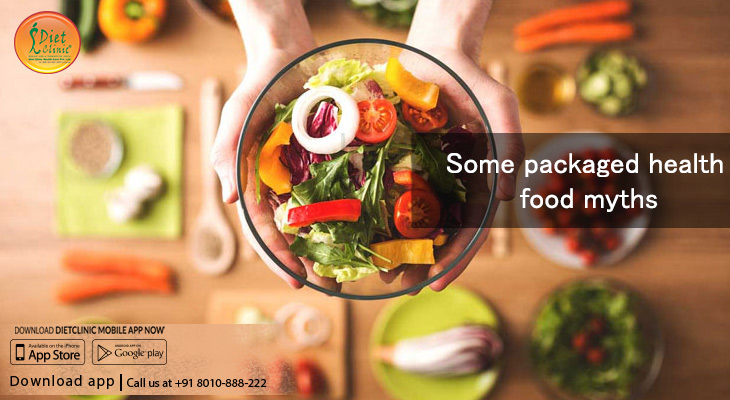
Dietician Sheela Seharawat
In this modern era, where information is overflowing, health, nutrition and diet has become a hot topic of discussion, and everyone seems to have a different perceptions of well-being, health and weight loss. The big question that comes here is, how much of the information that is available is correct between variety of foods available, diets and health regimes.
We all have some time or the other have picked up one product over another because of the health benefits mentioned on the label. It is very important to understand that in today’s marketing world, these are gimmicks played by manufacturers and companies to sell their products over others. Consumers find it difficult to understand nutrition levels and often tend to make choices that are not what they claim to be.
Noted below are a few most misleading and common phrases that we find on packaged foods, for you to understand the real fact and make smarter choices the next time:-
- Organic: we should understand that organic is not synonymous to health. Organic foods can still be packed with calories, fat and sugar. It’s the word that works as a magnet to attract customers. If a label says organic or made with organic ingredients it means that most of the ingredients used may have been grown and processed without pesticides and chemical fertilizers.
- Sugar free: a product labeled as sugar free doesn’t mean that it has less calories than non-sugar free products. These products may have lesser sugar contains but have calories and carbohydrates from other sources. In order to keep the calorie levels lower manufacturers often use sugar alcohols, which have low calories, but it can cause diarrhea if consumed in excess at one go.
- All natural: it’s a very common myth that health products marked as all natural. The fact is that the term has no meaning, its neither identified nor regulated. If such labels are on meat and poultry it only means that no artificial flavoring or coloring has been used.
- Brown eggs over white eggs: the myth hold no truth. The color of the eggshell is purely genetically linked with the hens. A brown hen will give brown and white will give white eggs. The nutritional value of both the options are the same. It is used to attract customers to buy the brown ones as they are more expensive than the white eggs.
- Artificial sugar to cut down on sugar intake: unfortunately it is not the case. Artificial sugar used in soda and sweeteners, often leads to cravings during the day. Studies conducted on overweight individuals have revealed that people who consume these artificial sugars also intake far more calories than those who consume normal soda or sugar.
- Light: a label on a product, like olive oil, may say that it is light. It is actually referring to the flavor of the oil rather than the ingredients. It is a confusing statement made by manufacturers and therefore, it is important to check the nutritional values of the product. A light oil can have high calories.
- Light should mean that the product have at least 50% lesser fat content than a competitive or similar product.
There are numerous other myths that are associated with health foods, but the most important aspect that we all should note before we believe or disapprove these myths is by carefully studying the nutritional values of any product that we buy. Fitness and good health is all about nutrition and motivation.
